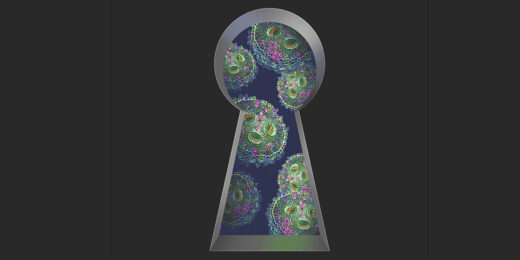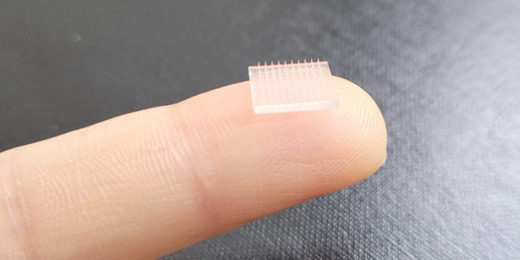Stanford Medicine researchers recorded stem cells performing a previously unknown type of movement, dubbed cell tumbling, which may help them differentiate.
Category: Biochemistry
Stanford Medicine experts help Nobel winner custom design proteins for COVID-19 therapy
Custom designing proteins — a breakthrough recognized by the latest Nobel Prize in chemistry — could yield treatments that stop the worst of COVID-19 before it begins.
What’s the deal with PFAS, aka ‘forever chemicals’?
The so-called ‘forever chemicals’ can stick around in the environment — and in our bodies. Scientists agree there is cause for concern. So what should we be doing to mitigate our health risks?
One researcher’s quest for the unknown, from stars to neurons
Stanford Medicine’s Sean Quirin once looked upward with a telescope, seeking clues to the universe. Now he trains his optical eye inward with a fascination for understanding the brain and the complex maladies that afflict it.
Searching for vaccine variability in the land of the flu
The ultimate goal: a vaccine with coverage so broad it can protect against viruses never before encountered.
The hunt for a vaccine that fends off not just a single viral strain, but a multitude
Stanford Medicine researchers are designing vaccines that might protect people from not merely individual viral strains but broad ranges of them. The ultimate goal: a vaccine with coverage so broad it can protect against viruses never before encountered.
The human lipidome reveals new indicators of health, disease and aging
A new survey of an under-explored aspect of human biology uncovers the many roles of the body’s “greasy molecules.”
mRNA vaccine spike protein differs from viral version
Scientists explain a key difference between the spike-protein molecules generated by the SARS-CoV-2 mRNA vaccine and those the virus induces.
Basic biochemistry research leads to heart-saving drug
Researchers at Stanford Medicine discovered the mechanism for a heart condition and developed a drug to treat it.
Ribosomes’ sweet spot
Researchers at Stanford Medicine discover an unknown quirk about the ribosome and make a sweet representation along the way.
A new approach to vaccinations: 3D printed patches
Researchers have created a new prototype technology to administer vaccines: a 3D printed patch that packs a punch.












